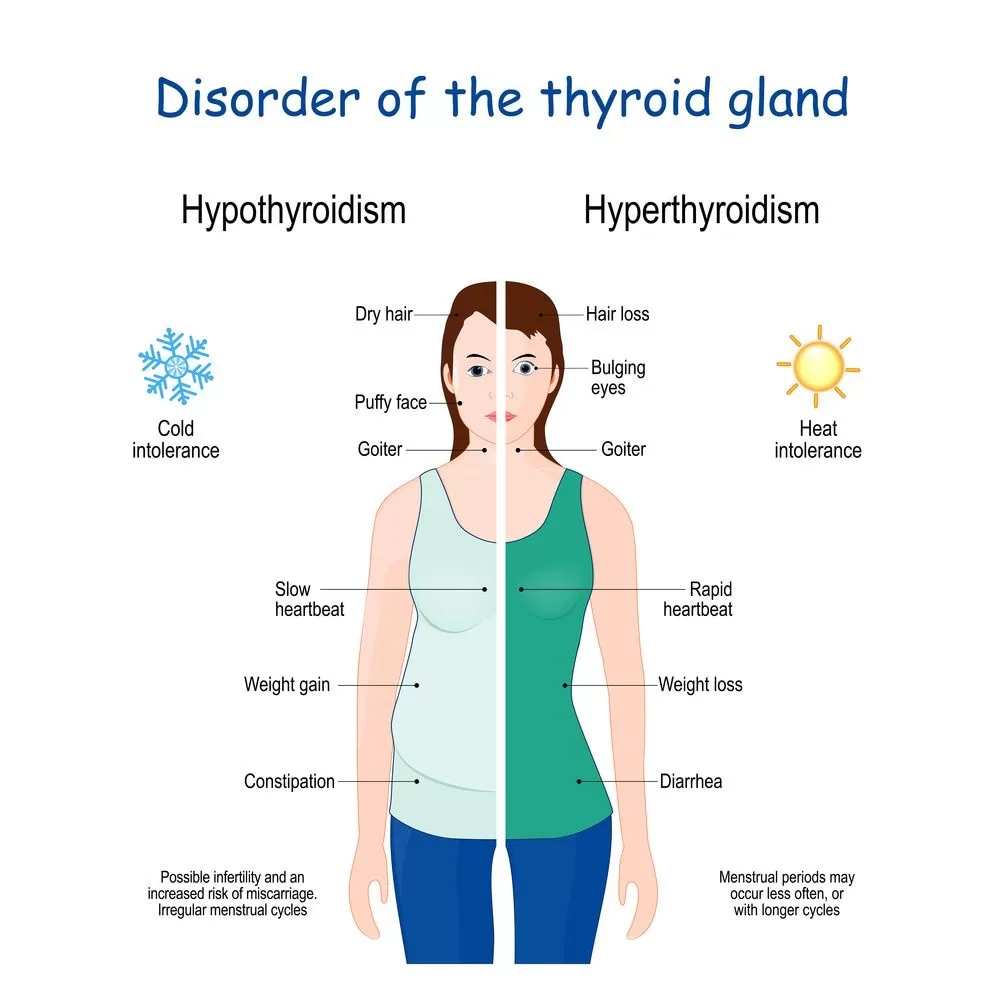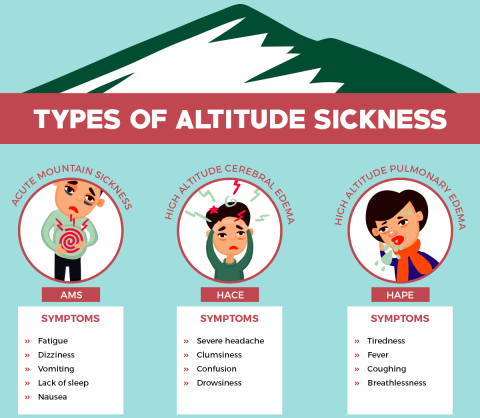Thyroid diseases encompass a range of conditions that affect the butterfly-shaped gland in your neck, pivotal in regulating your metabolism and overall health. Millions of individuals, specifically around 20 million in the U.S., are affected by thyroid disorders like hypothyroidism and hyperthyroidism, often without realizing it. Symptoms can vary widely from fatigue and weight gain associated with hypothyroidism to anxiety and rapid heart rates linked to hyperthyroidism. Furthermore, it’s crucial to be aware of thyroid cancer symptoms, such as changes in voice and difficulty swallowing, which can signify a more serious condition. Seeking prompt thyroid treatment and following endocrinologist advice is vital for maintaining hormone balance and preventing complications related to these often subtle yet impactful diseases.
The endocrine system plays an essential role in your body’s functionality, with thyroid dysfunction presenting itself in myriad forms that can significantly alter your health. Issues related to this vital gland include various forms of underactive and overactive thyroid conditions, effectively categorized into disorders like Hashimoto’s disease and Graves’ disease. The management of thyroid-related health concerns, including those that may lead to cancer, requires careful monitoring and appropriate interventions. By fostering awareness of underlying issues and symptoms representative of thyroid dysfunction, individuals can engage more effectively with medical professionals regarding their health. This holistic understanding of hormonal health reflects the interconnectedness of body systems and the significance of seeking professional guidance when necessary.
Understanding Thyroid Diseases and Their Impact
Thyroid diseases encompass a range of conditions that affect the thyroid gland, which is crucial for hormonal balance and overall health. With nearly 20 million individuals in the United States affected, these diseases can lead to serious health complications if left untreated. Many people remain unaware of their thyroid conditions, often attributing symptoms like fatigue and weight gain to other factors. This underscores the importance of awareness and education about thyroid health. Common conditions include hypothyroidism, where the gland does not produce enough hormones, and hyperthyroidism, where there is an excess production, each resulting in distinct health issues that require careful management.
Understanding the role of thyroid hormones, such as thyroxine (T4) and triiodothyronine (T3), is fundamental in recognizing how thyroid diseases can influence energy levels, metabolism, and mental health. For those diagnosed with thyroid diseases, consulting with an endocrinologist can provide necessary guidance and specialized care. It’s also essential for individuals to monitor their symptoms and communicate openly with healthcare providers to optimize their thyroid treatment and recovery.
Symptoms of Hypothyroidism and Hyperthyroidism
Hypothyroidism is characterized by a deficiency in thyroid hormone production, leading to a range of symptoms that often develop slowly over time. Common symptoms include fatigue, cold intolerance, weight gain, and depression. These symptoms are not only physically unwell but can also affect mental health, highlighting the comprehensive effect of thyroid function on one’s overall well-being. Because symptoms often overlap with other conditions, it is vital for individuals experiencing these signs to seek medical advice from an endocrinologist, who may recommend blood tests to confirm the diagnosis.
On the other hand, hyperthyroidism presents a contrasting array of symptoms, primarily resulting from an overactive thyroid. Patients may experience anxiety, increased perspiration, weight loss despite a good appetite, and heart palpitations. This condition can significantly disrupt a person’s daily life and emotional stability, making it equally important to seek prompt treatment. Both conditions not only affect physical health but also emotional and mental states, and thus, understanding the symptoms is crucial for seeking timely treatment.
Key Features of Thyroid Cancer Symptoms
Thyroid cancer is a more serious concern that can arise from the presence of thyroid nodules, which are common but rarely cancerous. However, when cancer does develop, it is essential to recognize its symptoms early for effective treatment. Changes in voice, enlarged lymph nodes, and difficulty swallowing are key symptoms that may indicate possible thyroid malignancy. These signs should not be overlooked, and individuals should consult an endocrinologist if they notice any persistent changes. Early detection greatly enhances the chances of successful treatment.
Understanding the risk factors for thyroid cancer is equally important. Individuals with a family history of thyroid diseases or those who have been exposed to radiation may be at an increased risk. Regular thyroid check-ups, especially for those with risk factors, can assist in early discovery. Awareness of thyroid cancer symptoms and proactive health measures can lead to better outcomes and more effective treatment strategies.
Diagnosis and Treatment Strategies for Thyroid Conditions
Diagnosing thyroid diseases typically involves blood tests to measure levels of thyroid-stimulating hormone (TSH) and associated hormones. These tests help determine the function of the thyroid gland and identify conditions like hypothyroidism or hyperthyroidism. If nodules are present, imaging tests such as ultrasounds may be used to assess their nature. Recognizing the importance of accurate diagnosis is essential for initiating effective treatment plans that meet individual patient needs.
Treatment of thyroid diseases varies based on the specific condition diagnosed. Patients with hypothyroidism may require lifelong hormone replacement therapy to restore proper hormone levels. Conversely, hyperthyroidism may be treated with medications to reduce hormone production or procedures for more severe cases. In instances of thyroid cancer, surgical intervention is often necessary to remove cancerous tissue. An endocrinologist can provide personalized treatment options, ensuring that patients receive the most appropriate care for their specific conditions.
Maintaining Optimal Thyroid Health Through Lifestyle Choices
Maintaining optimal thyroid health is significantly influenced by lifestyle choices and dietary habits. Consuming a balanced diet with adequate iodine intake is crucial, as this mineral is essential for hormone production. Foods like fish, dairy, and iodized salt can help ensure sufficient iodine levels in the body. Furthermore, engaging in regular physical activity and managing stress can also positively impact thyroid function and hormone regulation.
Moreover, it’s vital for individuals, especially those with a family history of thyroid issues, to stay informed about their health and seek regular medical check-ups. Endocrinologists can provide tailored advice and interventions that can assist in minimizing the risk of developing thyroid diseases or managing existing conditions effectively. Taking proactive steps towards thyroid health is essential for overall well-being.
Seeking Endocrinologist Advice for Thyroid Health
Consulting with an endocrinologist is essential for anyone experiencing symptoms of thyroid disease or having concerns regarding thyroid health. These specialists have the expertise to assess and diagnose various thyroid conditions accurately. They can also provide guidance on the most suitable treatment options available, whether it requires medication, lifestyle changes, or surgical intervention.
Additionally, regular visits to an endocrinologist can ensure ongoing monitoring of thyroid hormone levels, allowing for adjustments in treatment as needed. This is particularly important for individuals with chronic thyroid diseases, such as hypothyroidism and hyperthyroidism, to manage symptoms effectively and prevent complications. Engaging with healthcare professionals can empower individuals to take control of their thyroid health and lead a healthier life.
The Importance of Family History in Thyroid Diseases
Family history plays a crucial role in understanding the risk of thyroid diseases. Individuals with relatives who have had thyroid issues, including autoimmune diseases like Hashimoto’s and Graves’ disease, may be predisposed to similar conditions. Being aware of family health history can help individuals recognize potential symptoms and seek earlier intervention.
Moreover, discussing family history with healthcare providers enables more personalized risk assessments and screening recommendations. For example, individuals with a strong family history may be advised to undergo more frequent thyroid screenings to ensure early detection of any abnormalities. Understanding hereditary aspects of thyroid health is vital for proactive management.
Emerging Research in Thyroid Disease Treatment
Recent advancements in the research of thyroid disease treatment have led to new insights into the management of conditions like hypothyroidism and hyperthyroidism. Ongoing clinical studies aim to enhance medication efficacy and reduce side effects associated with traditional treatments. This developing knowledge base continues to shape how endocrinologists approach patient care, allowing for personalized and precise treatment strategies.
Additionally, there is growing interest in the role of lifestyle modifications and natural therapies in the management of thyroid conditions. Studies are exploring the effectiveness of diet, exercise, and stress reduction techniques in supporting thyroid function. By prioritizing patient-centered care and integrating emerging research findings, the treatment landscape for thyroid diseases is evolving to improve patient outcomes.
Emotional and Mental Health Effects of Thyroid Diseases
Thyroid diseases not only impact physical health but also significantly affect mental and emotional well-being. Hypothyroidism, for instance, is often associated with feelings of depression, lethargy, and cognitive impairments. Hydration, nutrition, and regular exercise can play an essential role in mitigating these symptoms, but many individuals may require additional support through counseling or medication to address mental health challenges.
Furthermore, hyperthyroidism can lead to heightened anxiety and mood swings, creating a cycle that can make dealing with the condition even more challenging. Being aware of the emotional ramifications of thyroid diseases can help patients seek comprehensive care that encompasses both physical treatment and mental health support. Establishing a strong support system among healthcare providers, family, and friends is vital for coping with the demands of managing thyroid health.
Frequently Asked Questions
What are the common symptoms of hypothyroidism and how can they affect daily life?
Common symptoms of hypothyroidism include fatigue, weight gain, and cold intolerance. These symptoms can significantly affect daily life by causing low energy levels, mood swings, and difficulty concentrating. If you suspect these symptoms, it’s essential to consult with an endocrinologist for proper diagnosis and treatment.
How does hyperthyroidism impact metabolism and overall health?
Hyperthyroidism leads to increased metabolism, which can cause symptoms such as rapid weight loss, anxiety, and excessive sweating. This overactivity can strain the heart and lead to serious health issues if left untreated. Consulting an endocrinologist for guidance on managing hyperthyroidism is crucial for maintaining overall health.
What role do thyroid nodules play in determining thyroid cancer symptoms?
Thyroid nodules can be benign, but certain characteristics may raise suspicion for thyroid cancer. Symptoms of thyroid cancer can include changes in voice, difficulty swallowing, and swollen lymph nodes. If you notice any of these symptoms alongside a thyroid nodule, it’s important to seek medical advice for evaluation.
What are the treatment options for thyroid diseases such as hypothyroidism and hyperthyroidism?
Treatment for hypothyroidism typically involves hormone replacement therapy to restore normal hormone levels. For hyperthyroidism, treatment options may include medications to inhibit hormone production, radioactive iodine therapy, or sometimes surgery. An endocrinologist can provide personalized advice based on the specific thyroid disease.
Why is it important to consult an endocrinologist when experiencing symptoms of thyroid diseases?
Consulting an endocrinologist is crucial because they specialize in hormone-related disorders and can accurately diagnose thyroid diseases through blood tests and imaging. They can also recommend the most effective treatment options tailored to individual health needs, ensuring proper management of conditions like hypothyroidism and hyperthyroidism.
How can diet and lifestyle affect thyroid health and the management of thyroid diseases?
Diet and lifestyle significantly influence thyroid health. A balanced diet rich in iodine, found in fish and iodized salt, supports thyroid function. Regular exercise helps manage weight and energy levels. Healthy lifestyle choices can mitigate symptoms of thyroid diseases and improve overall well-being, making it vital to include these factors in managing conditions like hypothyroidism and hyperthyroidism.
What are the risk factors for developing thyroid cancer and what symptoms should I look out for?
Risk factors for thyroid cancer include a family history of thyroid disease, previous radiation exposure, and certain genetic syndromes. Symptoms to watch for are changes in voice, persistent cough, difficulty swallowing, and swelling in the neck. Early detection is key, so consult an endocrinologist if you experience any of these signs.
| Key Points | Details |
|---|---|
| Purpose of the Thyroid | Produces hormones (T4 and T3) that regulate metabolism, heart function, and mood. |
| Common Thyroid Diseases | Hypothyroidism (underactive) and Hyperthyroidism (overactive). |
| Hypothyroidism Symptoms | Fatigue, weight gain, cold intolerance, depression. |
| Hyperthyroidism Symptoms | Anxiety, weight loss, excessive sweating, heart palpitations. |
| Thyroid Cancer Symptoms | Changes in voice, difficulty swallowing, lymph node enlargement. |
| Diagnosis | Blood tests (TSH levels) and ultrasound for nodules. |
| Treatment Options | Medications, surgery for cancerous nodules. |
| Prevention Tips | Healthy lifestyle, adequate iodine intake, awareness of family history. |
Summary
Thyroid diseases are critical health concerns that affect millions of people globally, especially women. With appropriate awareness of symptoms such as fatigue in hypothyroidism or anxiety in hyperthyroidism, individuals can seek timely medical advice. Understanding thyroid function, ensuring proper nutrition, and recognizing warning signs are essential for prevention and early intervention. Regular consultations with healthcare providers can significantly improve thyroid health outcomes.
The content provided on this blog (e.g., symptom descriptions, health tips, or general advice) is for informational purposes only and is not a substitute for professional medical advice, diagnosis, or treatment. Always seek the guidance of your physician or other qualified healthcare provider with any questions you may have regarding a medical condition. Never disregard professional medical advice or delay seeking it because of something you have read on this website. If you believe you may have a medical emergency, call your doctor or emergency services immediately. Reliance on any information provided by this blog is solely at your own risk.







